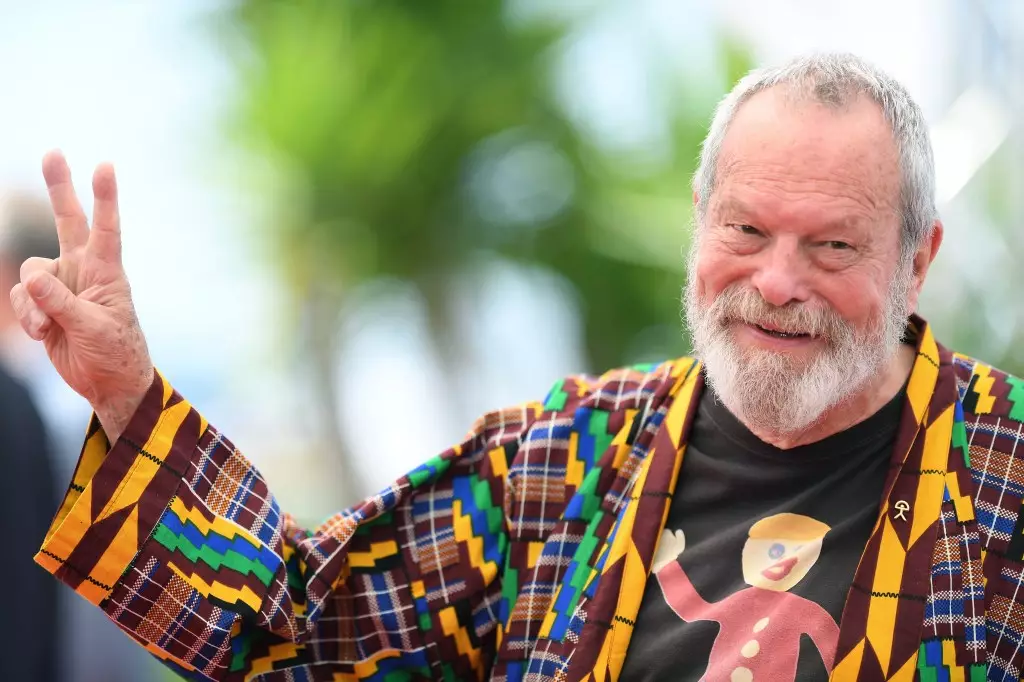Legendary filmmaker Terry Gilliam is set to take audiences on a whimsical yet thought-provoking journey in his upcoming feature film, *Carnival: At The End Of Days*. This ambitious biblical comedy, which promises to blend captivating storytelling with innovative visual effects, has caught the eye of Italian producer Andrea Iervolino. Known for his work on films such as *Ferrari* and *To The Bone*, Iervolino’s involvement is expected to bolster the production’s scope and financing. He is slated to not only finance but also produce the project, aiming to shoot on location in Italy as early as April.
Gilliam’s distinctive creative vision has always pushed the boundaries of cinematic storytelling, and Iervolino echoed this expectation, referring to *Carnival* as “an epic and visionary work.” The project aims to utilize a substantial amount of CGI, which will set it apart in the realm of independent film. Described by Iervolino as “extraordinarily complex,” the film seeks to achieve a unique visual experience, making it one of the most ambitious independent films in cinema history.
The narrative framework of *Carnival: At The End Of Days* is grounded in Gilliam’s trademark irreverence, leading to a story that hilariously twists biblical themes. According to the director, the plot unfolds as God decides to eliminate humanity for the havoc they’ve wreaked on Earth. However, unexpected intervention arises from none other than Satan, portrayed by Johnny Depp. Here, Satan is depicted as a reluctant guardian of humanity, striving to convince God to spare a new generation—essentially, a new Adam and Eve.
Gilliam characterizes the film’s comedy as dark and satirical. This peculiar role reversal presents Satan as a figure struggling with the consequences of humanity’s demise, raising profound questions about existence and morality, all while wrapped in a humorous narrative. The film leans heavily on Gilliam’s insight into humanity’s follies, telling a simple yet profound story that resonates on multiple levels.
With anticipatory buzz surrounding the casting, the film is aiming to gather an impressive array of talent. Names associated with the project include Jeff Bridges, Adam Driver, and Jason Momoa, alongside Depp—a familiar face in Gilliam’s cinematic universe. Although these castings are yet to be confirmed, the prospect of such seasoned actors bringing Gilliam’s fantastical world to life is exhilarating. Depp’s involvement as Satan signifies a continuation of his collaboration with Gilliam, highlighting their shared creative synergy.
Amidst the casting excitement, it is also essential to note that the filmmaking process demands time and dedication. Gilliam’s previous struggle with *The Man Who Killed Don Quixote*, a project that took nearly two decades to materialize, serves as a reminder of the complexities involved in independent filmmaking. Given this history, the timeline for *Carnival* raises questions about meeting production schedules and maintaining artistic integrity during the process.
The Impact and Anticipation
The alliance between Gilliam and Iervolino offers a striking juxtaposition of creative ambition and entrepreneurial drive, forming a partnership that could redefine independent filmmaking. By embracing both traditional storytelling and avant-garde visual aesthetics, *Carnival: At The End Of Days* is poised to leave a significant mark on the cinematic landscape.
As the film gears up for potential buyers at the European Film Market in Berlin, anticipation continues to build. This project signifies more than just a film; it is a testament to Gilliam’s enduring relevance and relentless dedication to pushing the boundaries of narrative and visual storytelling. It awaits to challenge viewers’ perceptions, encouraging them to explore deeper meanings while simultaneously providing an entertaining experience.
*Carnival: At The End Of Days* has all the ingredients to become a remarkable cinematic event. With Terry Gilliam at the helm, an innovative producer backing it, and a potential star-studded cast, audiences can prepare for an unforgettable venture that blends comedy, theology, and the quirkiness that has long been associated with Gilliam’s work.



Leave a Reply